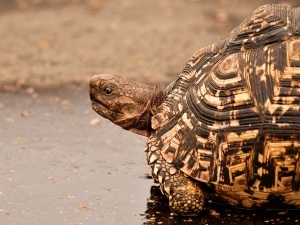
While turtles aren’t the most active of animals, if the animal is not active in any way, if it does not respond to touch, then you’d understandably be quite worried.
This article is a look into why your turtle is not responding to touch
Table of Contents
Why is my turtle not responding to touch?
Unfortunately for any turtle ower, your pet won’t always be in the best of health and it will even die at some point.
So, knowing and understanding what different behaviors in your turtle mean will help you understand how your pet is doing
If your pet is not responding to touch then you may be worried as to why, here is why your turtle may not be responding to touch:
Your pet is dead:
If your pet turtle isn’t responding to any stimulation at all from you, you poke the animal’s cloaca, eyes, and face, if you pull on the animal’s body parts, and it doesn’t respond, then your pet may be dead.
Other signs that may indicate that your pet is dead are a turtle that is cold to the touch, a smell coming from the turtle because it is decomposing, deep sunken eyes, flies and maggots collecting around and on the turtle, sunken or shriveled skin, not breathing, and limpness.
If you see a combination of these signs then your pet turtle is likely dead. Your pet may stiffen up, and go into rigor mortis soon after they die
What to do:
If your pet is showing all of these signs then the animal is likely dead.
If you’re not 100 percent sure then it is recommended that you take your pet to the vet, a herp vet preferably, for confirmation.
A herp vet is a vet who specializes in exotic animals, like turtles, and is the best type of vet to take your pet turtle to.
The vet will examine your pet and give you a definitive answer as to whether the animal is dead or alive.
If you can’t get your pet to the vet then soak it in some water and pull it out when the animal warms up. Keep your reptile’s head out of the water as you soak.
Wait a day or two to see if it starts to move, if it doesn’t then the animal is likely dead.
Brumation:
One of the reasons why your pet turtle may not be responding to touch may be that the animal is brumating.
You can think of brumating as a turtle’s version of hibernating. Brumation causes the turtle’s bodily systems to slow sown to a point where the animal seems lifeless.
Brumating will start if the animals’ environment, or water temperature, is too low.
While the animal’s body may seem lifeless during this time the reptile will still respond to touch.
Your turtle will still be aware of its surroundings so if you press the animal’s cloaca, pull on its limbs, or flip it on its back then the animal will respond.
What to do:
You don’t have to worry if your pet is brumating, this is a normal thing that turtles, both in the wild and in captivity, do.
If you enjoyed this article then you may also be interested in other turtle/tortoise related articles. Here are some articles that you may be interested in: Why Is My Turtle Neck So Long?, Why Is My Turtle Not Using It’s Back Legs, Why Is My Turtle Eating Sand?, Why Is My Turtle Tank Cloudy?, Why Is My Turtle Not Growing?, Why Is My Turtle Not Eating In Winter?, Baby Turtle Is Not Eating, Why Is My Turtle Limp?, Why Is My Turtle Not Pooping?

